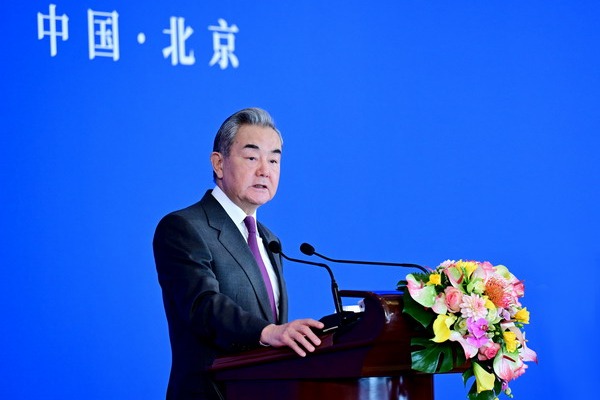Johnson stresses value of union for Scotland


UK's prime minister plays up benefits of the Home Nations remaining united
Prime Minister Boris Johnson emphasized the strength of the union of the United Kingdom ahead of a visit to Scotland on Thursday that sought to counter growing support for the Scottish independence movement.
The prime minister's visit follows a series of opinion polls that show a majority in Scotland support separation, and after Scotland's first minister, Nicola Sturgeon, threatened an independence referendum if Johnson does not give her the power to hold one.
Johnson has repeatedly stated his opposition to a referendum, and has suggested that another one should not be held for 40 years.
Sturgeon, who is the leader of the Scottish National Party, or SNP, urged Johnson to reconsider his visit, saying the journey was not "essential" and could encourage people to break current COVID-19 travel restrictions.
Sturgeon argued the prime minister should "lead by example" and stay in London. "People like me and Boris Johnson have to be in work for reasons people understand, but we don't have to travel across the UK," she said.
Ahead of his trip, Johnson underlined the advantages of remaining in the 313-year-old union with England, including how Scotland has benefited in the fight against the virus.
He said: "The great benefits of cooperation across the whole of the UK have never been clearer than since the beginning of this pandemic.
"We have pulled together to defeat the virus, providing 8.6 billion pounds ($11.8 billion) to the Scottish government to support public services whilst also protecting the jobs of more than 930,000 citizens in Scotland.
"We have a vaccine program developed in labs in Oxford being administered across the UK by our armed forces, who are helping to establish 80 new vaccine centers across Scotland.
"That's how we are delivering for the people of Scotland, so we can ensure the strongest possible recovery from the virus."
On Sunday, the SNP revealed an 11-point "roadmap to a referendum" on Scottish independence. It said that a "legal referendum "would be held "after the pandemic" if there is a pro-independence majority at Holyrood (Scotland's Parliament) following May's election. It also said it would "vigorously oppose" any legal challenge from the UK government.
The BBC's political correspondent, Nick Eardley, said there are two key reasons for the increase in support for independence, with the first being Brexit, the UK's exit from the European Union, which was completed on Jan 1.
"A comfortable majority of Scottish voters backed Remain (meaning they voted to stay in the EU in the 2016 Brexit referendum), and some of the increased support for independence appears to come from that group," Eardley said.
"The second reason is the way the pandemic has been handled. Health is a devolved issue, so the Scottish government has been making most of the big decisions on it for the past 10 months."

































